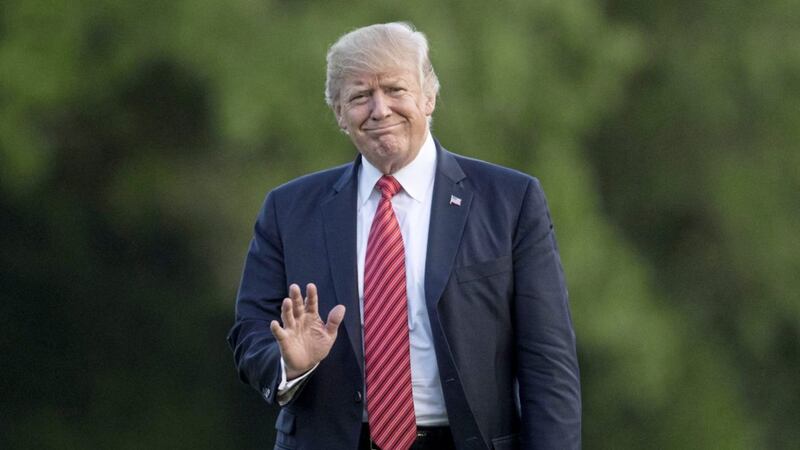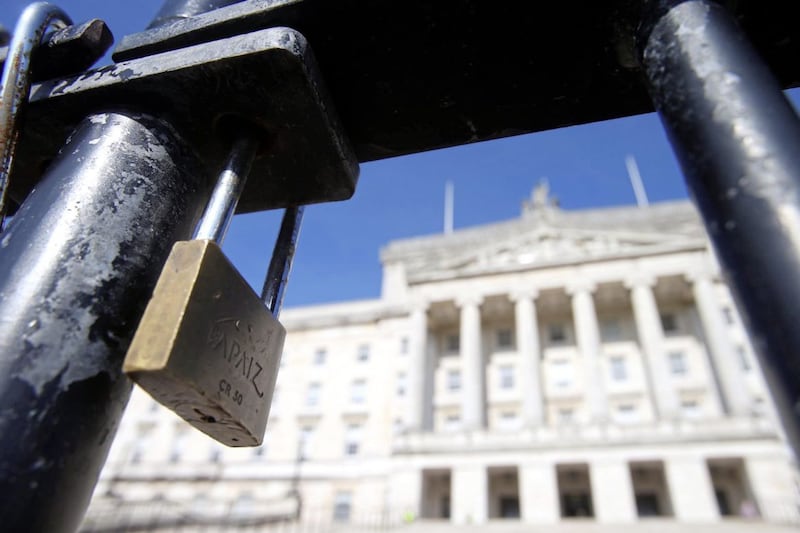Having been to the USA on many occasions, including a prolonged sojourn in my twenties, I thought I knew the place well. But when you travel the same route all the time, you can miss something.
I normally landed at JFK or Newark but this time took an attractively-priced flight to a small airport in upstate New York with two names, Stewart and Newburgh.
It was like flying to the City of Derry airport when your real destination is Belfast: there was a coach-trip of about 60 miles/97km to Manhattan, but the jingle of loose change in my pocket made up for minor inconveniences.
On the way out of the airport I noticed a tourist brochure for "Ulster". Since we had flown from Dublin, I thought maybe this was a clever initiative aimed at Americans on board who were planning a return visit. However, I had not noticed the term "Ulster" being used much in tourist material back home. The fact that the province is divided between two jurisdictions may be the reason.
No doubt readers will have twigged at this stage that the subject of the brochure was, in fact, Ulster County, which is in upstate New York although it was named after the Irish province. There is also a town called Ulster and, wait for it, another district called Orange County. As it happens, Ulster County gave a majority to Hillary Clinton and Orange County backed Donald Trump in last year's presidential election.
Unlike previous US visits, hardly anyone asked about the situation in the north of Ireland. It was a relief to avoid the embarrassment of confirming that the two main parties still hadn't re-established the power-sharing executive and that, despite the herculean work over the years of Edward Kennedy, Bill Clinton, George Mitchell, "Tip" O'Neill and Jean Kennedy Smith, among others at home and abroad, the tiresome old divisions and "whataboutery" still held sway.
The only political topic in the States at the moment is, you've guessed it, a certain gentleman with a mop of blond tresses who resides at the White House. People I met of a left/liberal/Democrat persuasion were bewildered by The Donald's unpredictable behaviour, and feeling deep anxiety as to what he might do about North Korea, not to mention his recent remark that a "military option" could not be ruled out in relation to strife-torn Venezuela. His recent speech to the United Nations General Assembly did not calm anyone's nerves - quite the contrary.
There are others, however, who won't hear a bad word against President Trump. His status as a multimillionaire businessman has not prevented him from building a loyal and devoted political base among sectors who live "from pay-check to pay-check" (pardon the American spelling.) This reinforces the view that the elite in the US, as in other places, have lost touch with ordinary folk.
On a more local issue, it is disappointing that the position of US Special Envoy to Northern Ireland is being abolished. The Washington nominees were generally considered more neutral and impartial than their London or Dublin counterparts and won a level of respect from both unionists and nationalists that was hard for others to achieve.
Senator Mitchell, in particular, was very good at knocking heads together in the most urbane and civilised fashion. A key figure in the Good Friday talks once told me: "He babysat us." Well it seems the babies still haven't grown up, but there is a cutback on childcare.
They say politics is the art of the possible and it beggars belief that a solution cannot be found to the issues that are supposedly at the root of the current stasis. Seamus Mallon said the Good Friday Agreement was "Sunningdale for slow learners" but the classroom seems to be asleep these days.
Meanwhile, for all its faults, politics in the south continues to function, more or less. Micheål Martin has yet again forsworn coalition between his party and Sinn Féin which might mean that it won't happen or that it will take place under a different Fianna Fáil leader. Fine Gael Taoiseach Leo Varadkar has been accused of putting spin and image ahead of substance but, at time of writing, an opinion poll has his party eight points ahead of Fianna Fáil. A separate poll says four points, so the public seem to be buying into him for now.
Across the Atlantic, the one consistent feature of the Trump presidency is his poor showing in the polls. He looks vulnerable to a Democratic challenger at the end of his first term in 2020 (assuming he's still in the job.) The question is, who? One of the names I heard was Andrew Cuomo, governor of New York State, whose territory includes the Ulster and Orange counties referred to above.
ddebre1@aol.com








